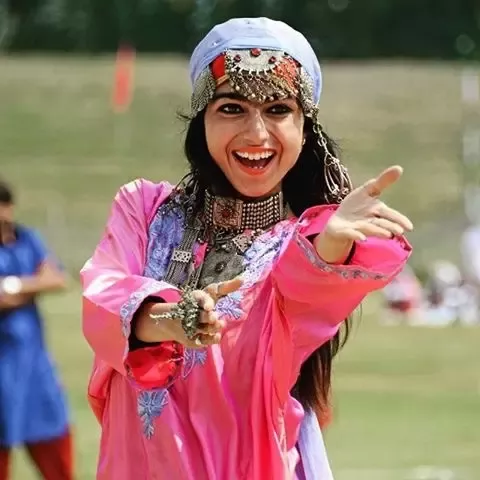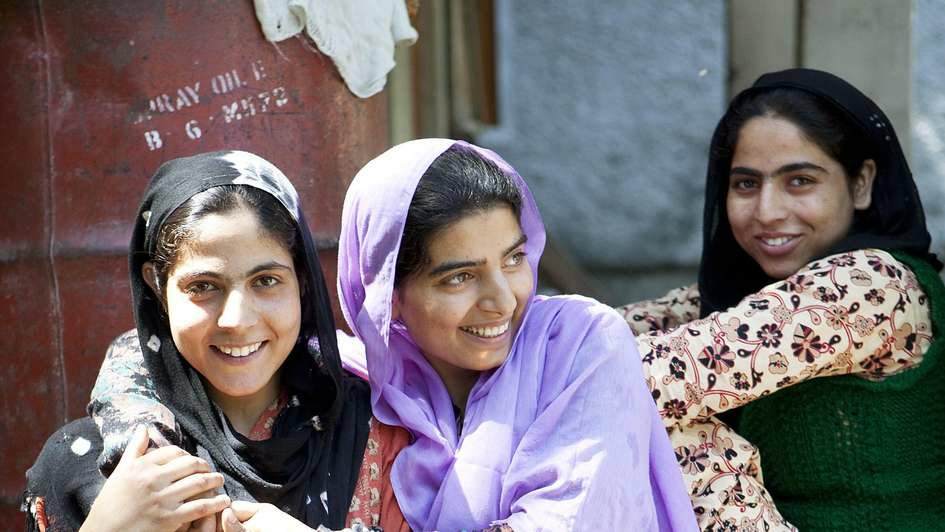Rejoice Daughters of J&K; RIP Article 370 / Neelam Jain
by
Neelam Jain
·
August 6, 2019

In a huge move, Home Minister Amit Shah on August 5, 2019, announced scrapping of Article 370 of the Constitution that provides special status to the state of Jammu and Kashmir. With it was also laid to rest the highly discriminatory provision of the state that penalized a woman for marrying an outsider but protected a male in similar circumstances.
Article 370 and 35A – as introduced in the Indian Constitution for granting special status to Jammu and Kashmir, were a fundamental breach of women’s fundamental rights as Indian citizens. A glorious tradition that believes in
Yatra naryastu pujyante ramante tatra Devata,
yatraitaastu na pujyante sarvaastatrafalaah kriyaah
“Where Women are honoured, divinity blossoms there, and where women are dishonored, all action no matter how noble it may be, remains unfruitful”,
the state of J&K deprived its daughters their basic right if they married an outsider. In Jammu and Kashmir, citizenship was unequal among men and women. The irony was never lost on the daughters when the entire country thronged to the most revered shrine of Mata Vaishno Devi, yet the same state displayed an unsavory bias against its girls.
What an anomaly. If a woman from J&K married a foreigner she would lose her right to inherit, own or buy immovable property in the state, whereas no such law affected a male in a similar situation. Consider this, if a boy from the state married a girl from outside, his wife not only became a state-subject (the certificate that confers special privileges on the state residents), but their children enjoyed the status by default. Whereas, if that boy had a sister and she also chose to marry an outsider, she stood to lose her state-subject and all the related rights. Her husband would never be welcomed as a traditional ‘Jamai’ in the state. Their children were aliens. All because of her gender!
You might exclaim, “Are you joking!” Yet, that’s exactly what it was. A poor joke played by the state on its own daughters.
An interesting example is the well-known family of Farooq Abdullah himself. Farooq Abdullah married a British woman and their son Omar Abdullah got to become the Chief Minister of the state. Omar’s wife was also not from the state, yet it did not impact his rights. On the other hand, Omar’s sister when she married an outsider she lost all rights as a state subject.
On October 7, 2002, the Jammu and Kashmir High Court overturned the established legal position. The court ruled that by marrying an outsider, a J&K woman did not lose her permanent-resident status. The decision was contested by the state’s political parties, who drafted a bill known as the Daughters Bill or the Permanent
Residents’ (Disqualification) Bill stripping a woman of permanent resident-status if she married a foreigner. Although the bill was not passed, a similar bill was introduced in March 2010. This bill was also not passed. It, however, had considerable political support
The 2002 ruling came after a bunch of women went to court to fight against the discriminatory nature of the law. The battle, however, was only partially won. Women marrying outside the state could inherit their parental property, but the rider was they still could not pass it on to their children.
Women have had to fight for their rights through history. However, in a modern India that enshrines equal rights to its women in the Constitution, the state of Jammu and Kashmir continued to practice the anachronistic denial of fundamental rights on the basis of gender.
August 5, 2019, spelt a historic victory for the women of the state. August 15 is India’s Independence Day, but in my opinion women of J&K could herald their independence 10 days in advance. By one fell well-deliberated swoop, Home Minister Amit Shah set the anomaly right. The Damocles sword was lifted from the neck of many a woman of the state who had inherited property, but by virtue of having married an outsider could not pass it on to her children. They always feared losing the property.
Besides other political and geographical implications of the August 5, 2019 move by the Home Minister under the aegis of PM Narendra Modi, it is a big day for the women of the state who now feel on par with men in their citizenship rights.
“I am a woman with thoughts and questions and shit to say. I say if I’m beautiful. I say if I’m strong. You will not determine my story–I will.” -Amy Schumer

Tags: 370KashmirmarriageRIP 370women's rights
You may also like...


